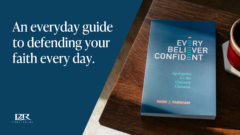More than any other question that comes in via email, I’m asked this one: “How do you read so much?” While granting that I do read a lot, I think it bears mention that there are lots of people who read as much as I do or a lot more. The difference is that I write about what I’m reading, so you’re more aware of it than you are with most of these voracious readers.
Every year or so I sit down to write out a few thoughts on reading. I’m doing so again today, offering a few thoughts on how you can read more and read better. This is adapted from a list I created a couple of years ago. Actually, what I’ll do is write today about how to read more and read more widely and then tomorrow we’ll work on reading better.
Read – Start with the obvious: you need to read. If you want to be a good painter, you’ve got to paint; if you want to be a good runner, you’ve got to run. So before anything else, you need to commit to the discipline. Unless reading is a genuine passion, you may need to be very deliberate about setting aside time to do it. You may need to force yourself into it. Set yourself some reasonable targets (“I’m going to read three books this year” or “I’m going to finish this book before the end of the month”) and work towards it. Set aside time every day or every week and make sure you pick up the book during those times. Start out by reading a book that deals with a subject of particular interest to you. You may even find it beneficial to find a book that looks interesting–a nice hardback volume with a beautiful, embossed cover, easy-to-read fonts and excellent typography. Reading is an experience and the experience begins with the look and feel of the book. So find a book that looks like one you’ll enjoy and commit to reading it. And when you’ve done that, find another one and do it again. And again.
Read Widely – I’m convinced that one reason people do not read more is that they do not vary their reading enough. Any subject, no matter how much you are interested in it, can begin to feel dry if you focus all of your attention upon it. So be sure to read widely. Read fiction and non-fiction, theology and biography, current affairs and history. You will no doubt want to focus the majority of your reading in one broad area, and that is well and good. But be sure to vary your diet. I think it’s especially important to say to Christians that you are allowed to read mainstream books. Read a bit of Malcolm Gladwell or read Freakonomics or a title plucked from the bestseller’s list. Many of these books will enrich you in unexpected ways.
Read Deliberately – Similar to reading widely, ensure that you read deliberately. Choose your books carefully. If you neglect to do this, you may find that you overlook a particular category for months or even years at a time. Al Mohler, a voracious reader, divides books into six categories: Theology, Biblical Studies, Church Life, History, Cultural Studies, and Literature and has some project going within each of these categories at all times. You can draw up categories of your own, but try to ensure you are reading from a variety of the categories on a regular basis. Choose books that fit into each of these categories and plan your reading ahead of time, so you know what book you will read next and you know what you’ll read after that. Anticipation for the next book is often a motivating force in completing the current book. “As soon as I finish this book I can start in on that one…”
Read Heavy Books – It can be intimidating to stare at some of those massive volumes or series of volumes sitting on your bookshelf, but be sure to make time to read some of those serious works. A person can only grow so much while living on a diet of easy-reading Christian Living books or Amish romance novels. Make your way through some Jonathan Edwards or John Calvin. Read Grudem’s Systematic Theology or David Wells’ “No Place for Truth” series, even if you do so just a few pages at a time. Pick up some thick biographies or histories. Grab a bestseller or two that will be long and onerous but still interesting. You will find them slow-going, to be sure, but will also find them rewarding. Commit to reading some of these heavy volumes as a regular part of your reading diet. Don’t be afraid of the challenge.
Read Light Books – While dense books should be a serious reader’s main diet, there is nothing wrong with pausing to enjoy the occasional novel or light read. After reading two or three good books, allow yourself to read a Clancy or Grisham or Peretti or something else that never changed anyone’s life. Allow yourself to get lost in a good story every now and again and stay up way too late insisting that you’re going to read just one…more…chapter. You will find that they refresh you and prepare you to read the next heavy book.
Read New Books – Keep an eye on what is new and popular and consider reading what other people in your church or neighborhood are reading. If The Shack is selling millions of copies, consider reading it so you know what everyone else is reading and so you can attempt to discern why people are reading it. Use your knowledge of these books as a bridge to talk to people about their books and what attracts them to the ones they read. Use your knowledge of these books to understand what other Christians are reading and why. You can learn a lot about culture, about the church, about your friends and neighbors by reading what they read.
Read Old Books – Do not read only new books. I cannot say this any better than C.S. Lewis: “It is a good rule, after reading a new book, never to allow yourself another new one till you have read an old one in between. If that is too much for you, you should at least read one old one to every three new ones. Every age has its own outlook. It is specially good at seeing certain truths and specially liable to make certain mistakes. We all, therefore, need the books that will correct the characteristic mistakes of our own period. And that means the old books.” So be sure to read old books, whether that means classics or whether that simply means books that come from a generation or two before your own. And be sure to read history as well, since there is no better way of understanding today than by understanding yesterday.
Read What Your Heroes Read – We all have our heroes–men or women we want to be like. Most heroes (who are worth emulating) have been shaped by the books they have read. So when you find a person you admire, find and read the books that have most shaped him. If you want to be like John Piper, don’t just read the books he was written–read the books that made him who he is.
Come back tomorrow and I’ll work up some tips on reading better.










